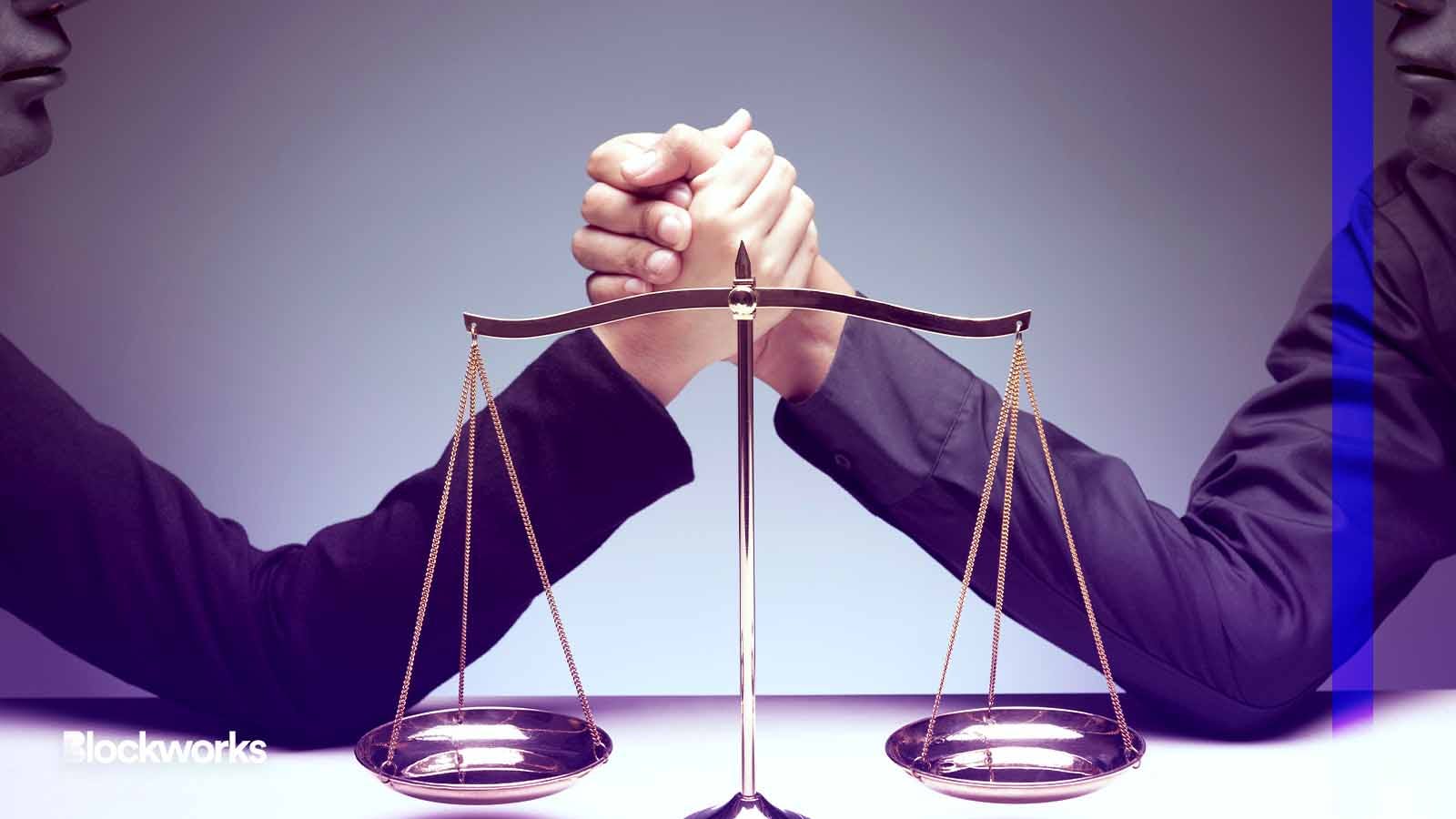Government moves to toss 7 testimonies in Sam Bankman-Fried case
Sam Bankman-Fried’s lawyers have complained about 7.7 million pages of discovery from the government

zendograph/Shutterstock modified by Blockworks
The back and forth between Sam Bankman-Fried’s counsel and attorneys representing the Department of Justice continues, leading up to a virtual hearing scheduled for Wednesday, Aug. 30.
In a Tuesday filing, lawyers representing the US filed a letter with the Court pushing back against multiple letters from Bankman-Fried’s lawyers on discovery.
The defendants claim that further discovery from the government should be excluded from the trial, which is set to begin on Oct. 3.
A court order from Monday confirms that a virtual hearing regarding the letters and the defense’s motion is scheduled for Wednesday.
However, the government claims that the former CEO of FTX has complained about the volume of discovery — lawyers alleged that roughly eight million documents were produced by the government recently. In an Aug. 25 letter, the defendants identified four million pages, and on Aug. 28, they called out 3.7 million pages.
The government claims that Bankman-Fried’s “representations are distorted to the point of being misleading,” and that the millions of pages of discovery obtained came from the defendant’s Google accounts. The material would have been supplied sooner, but there was a mishap with Google. As it stands, they continue, the discovery was identified prior to the cut-off date, which was back in July.
Despite the complaints, there’s no proof that what the government has identified breaks Rule 16. This rule essentially ensures that the government discloses certain evidence it plans to use during the trial, according to the Legal Information Institute at Cornell Law School.
In addition, the government pushed back against seven expert witnesses, asking the court to exclude their testimonies.
“The defense’s proposed experts and accompanying disclosures suffer from an array of deficiencies that warrant preclusion of all seven witnesses,” the DOJ argues.
One of the proposed testimonies was set to come from an English barrister, Lawrence Akka, who planned to say that the FTX’s terms of service “gave rise only to a contractual creditor-debtor relationship.”
The government argued that the barrister’s interpretation of the terms of service is “plainly inadmissible.”
Similarly, the attorneys sought to dismiss the testimony from Professor Bradley Smith, who was set to speak on federal election laws.
The testimony from consultant Peter Vinella was deemed questionable, as he “lacks sufficient expertise.” In total, four of the seven possible testimonies were from leaders of different consulting firms.
Another consultant, Joseph Pimbley, was denied by the government on the grounds that his testimony on FTX’s coding was “unnecessary” since the DOJ plans to call both Gary Wang and Nishad Singh to the stand. Both Singh and Wang not only have experience with FTX’s code but also worked at FTX.
The government asked the court to ”exercise its gatekeeping authority and preclude such impermissible expert testimony.”
In addition to the back and forth, Bankman-Fried’s lawyers have also filed an appeal with the Second Circuit Court of Appeals claiming that he was only exercising his First Amendment rights by sharing the writings of Caroline Ellison with the New York Times. Ellison previously led Alameda Research; she and Bankman-Fried were once romantically linked.
A judge revoked Bankman-Fried’s bail back on Aug. 11, stating that there was probable cause to support witness tampering.
Get the news in your inbox. Explore Blockworks newsletters:
- The Breakdown: Decoding crypto and the markets. Daily.
- 0xResearch: Alpha in your inbox. Think like an analyst.






